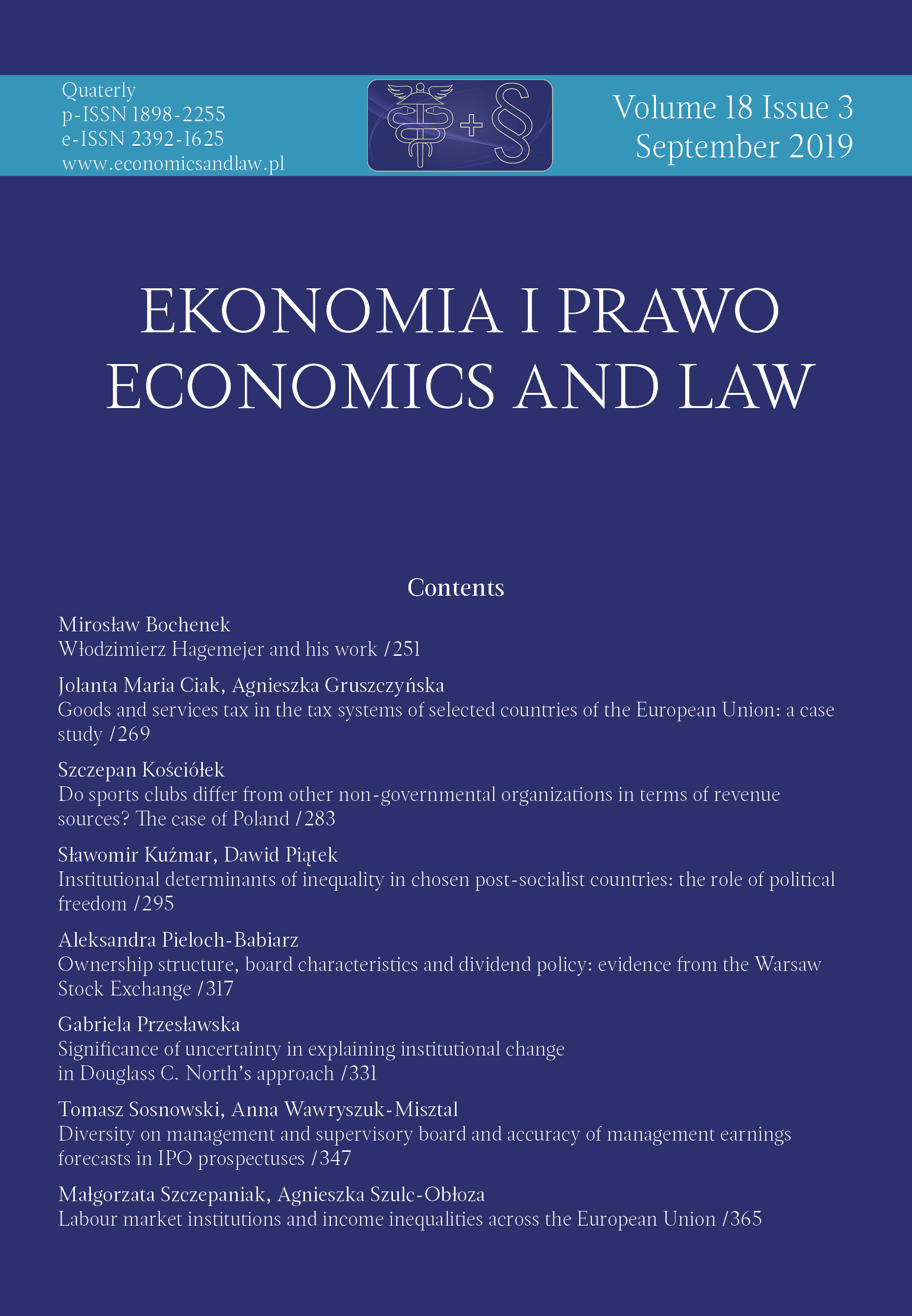Institutional determinants of inequality in chosen post-socialist countries: the role of political freedom
Institutional determinants of inequality in chosen post-socialist countries: the role of political freedom
Author(s): Sławomir Kuźmar, Dawid PiątekSubject(s): Economy, National Economy
Published by: Wydawnictwo Naukowe Uniwersytetu Mikołaja Kopernika
Keywords: political freedom; post-socialist countries; inequality
Summary/Abstract: Motivation: economic literature indicates that differences in the inequality levels among modern countries can be attributed to many factors or processes such as: economic performance, natural resources endowments, demographical structure or institutional framework. It seems to be important to emphasize that in the case of post-socialist countries where many predetermined trajectories of inequalities were adopted policies and institutions played an important role in shaping inequality.Aim: in this context the question about the role of political freedom — as one of the key aspects of institutional framework — for the levels of inequality in these countries seems to be especially important. The aim of this paper is to evaluate the role of different political institutions adopted in post-socialist countries for the levels of income inequalities observed among them.Results: the obtained results indicate that the post-socialist countries which managed to create more inclusive political institutions experience lower inequalities in the distribution of disposable income.
Journal: Ekonomia i Prawo. Economics and Law
- Issue Year: 18/2019
- Issue No: 3
- Page Range: 295-315
- Page Count: 21
- Language: English

